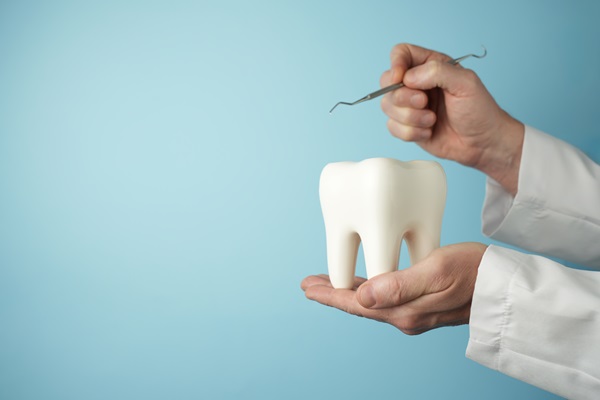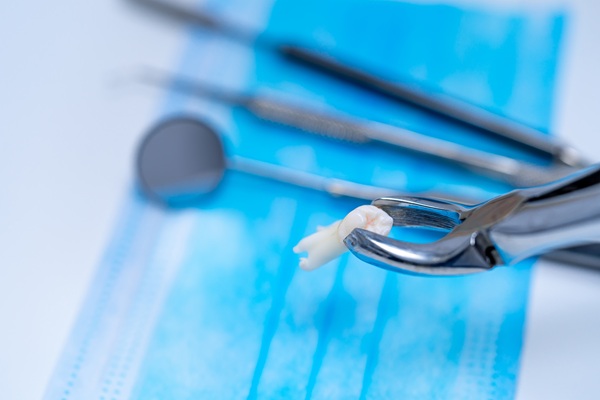4 Facts About Tooth Extractions
Curious about when tooth are needed? Read on to learn more. Tooth extraction is when the tooth is removed completely from its socket. Tooth extraction is hardly a procedure anyone looks forward to, but the majority of the procedures are fast and painless. So do not be alarmed if your dentist starts talking about extraction.
4 Facts about dental extractions
A dentist will try to preserve the natural teeth wherever feasible. However, there are instances when extracting a tooth is the best choice for a patient's dental health. Tooth extraction may be unavoidable in situations like advanced periodontal disease or severe decay, deformities, impaction, or severe damage to the tooth from an injury. A dentist may also recommend tooth extraction to create room on the jaw for orthodontic treatment, dentures, or dental implants.
1. Extractions can be simple or surgical
Whether the extraction is simple or surgical depends on the patient's problem. For example, someone with a fully erupted tooth that has cracked can expect a non-invasive procedure in which the dental professional will loosen the tooth and take it out with forceps.
On the other hand, an un-erupted tooth or a tooth that has fractured at the gum line may require that the removal of some bone around the tooth and the placement of sutures after the surgery. Both methods are common, and the dental professional will review the process before the extraction.
2. There are important steps to take before extractions
The dentist will likely review the patient's medical history before the procedure. While tooth extractions are usually considered safe, the dental professional needs to ensure no health problems put the patient at risk of infection. In certain instances, the dentist may suggest taking antibiotics before or after the treatment to reduce the risk of infection.
The dentist will also take x-rays. When it is time to extract the tooth, this information will assist them in making the best decision possible. Patients should arrange for a friend or family member to take them home after the operation since the effects of the anesthetic sometimes take time to wear off.
3. Sedation is typically provided
The process is the same for a simple extraction or a surgical extraction. The dental professional will begin by administering an anesthetic. In the case of simple extractions, the dentist would most likely administer a local anesthetic. A general anesthetic may be recommended for more complex extractions. In any instance, anesthesia is used to numb the tooth, jawbone, and gums surrounding the afflicted region to keep patients comfortable throughout the procedure.
4. It is critical to follow the dentist's after-care recommendations
Following the dentist's after-care instructions can help ensure a quick healing period and minimize the risk of complications like dry sockets. Recovery may take anything from a week to several weeks, depending on the procedure.
The bottom line
Although the idea of undergoing tooth extraction often leaves patients worried, these operations are usually painless. If you have any worries, discuss them with your dentist to help you feel as relaxed as possible throughout the treatment.
Request an appointment here: https://smileydentalmaricopa.com or call Smiley Dental at (520) 252-4044 for an appointment in our Maricopa office.
Check out what others are saying about our dental services on Yelp: .
Related Posts
A wisdom tooth extraction is a procedure done to remove the last set of molars to emerge in the mouth. The pain, discomfort and swelling that patients experience after the procedure is part of the healing and recovery process. One question many patients ask is how long recovery takes, and this article answers that question…
If your child needs dental work, a kid friendly dentist is the right professional to see. A kid friendly dentist has the knowledge and training to meet your child’s needs. The dentist will also know what types of treatments your son or daughter requires based on their condition. Various interventions should occur at different ages…
People with missing teeth can benefit from getting implant supported dentures. These appliances can help improve smiles and oral health. Some people often find them to be more comfortable compared to conventional dentures. But after getting them, it is crucial for people to do all they can to promote healing. Following the dentist's instructions very…
Looking for a general dentist who offers laser dentistry services? This advanced dental treatment option is growing in popularity every day, as it offers various benefits that are not available using other treatment options. For example, according to the American Dental Association, lasers are used to reshape gums and remove bacteria during root canal procedures.A…


